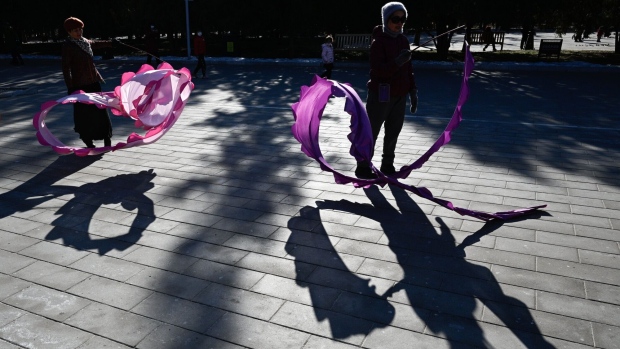Apr 9, 2024
Global Venture Funding Drops 30% as China Helps Drag Market Down
, Bloomberg News

(Bloomberg) -- Global venture capital funding declined 30% in the first quarter, continuing its slump as investors remain cautious amid sputtering economies and a sluggish market for stock-market debuts.
China’s 40% decrease helped pull the market down, while the US saw a 29% drop, according to data collected by research firm Preqin. The overall worldwide haul by startups shrank to $57.8 billion in the first three months.
The numbers signal investors are concerned by slowing economies and elevated inflation, and the impact those are having on young companies. Global VC investment last year fell to the lowest since 2017, even as new technologies such as generative artificial intelligence attracted funding.
In China, investments into AI companies almost doubled to $4.2 billion in the first quarter, while the country’s overall VC bets fell to $11.8 billion, according to Preqin. That’s the lowest quarterly dollar amount since the first quarter of 2020.
Read More: Billionaires and Bureaucrats Mobilize China for AI Race With US
Among China’s 19 biggest deals in the first quarter were two investments in up-and-coming startups Moonshot AI and MiniMax, each company valued in the billions of dollars.
The Chinese government has designated research into cutting-edge fields like AI a priority for coming years, vowing to mobilize an entire nation to try and reduce a reliance on Western technology. AI is of particular interest to both Beijing and Washington because of its military and commercial applications.
Joining Silicon Valley peers like Microsoft Corp., Chinese tech giants from Alibaba Group Holding Ltd. to Tencent Holdings Ltd. are developing their own large language models while investing in startups such as Baichuan and Zhipu.
“China is banking on artificial intelligence as a way to counter economic growth hurdles, including slowing productivity growth and a declining working-age population,” said Shawn Xiong, senior analyst at Moody’s Ratings. “However, implementation requires large investment and companies face execution risks.”
©2024 Bloomberg L.P.





